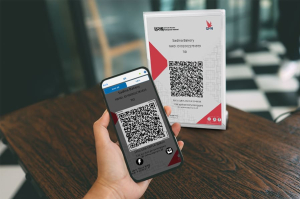How-to understand corporate income tax in Indonesia
Generally, there are two types of taxes that must be paid and reported by corporate taxpayers, namely corporate income tax and value-added tax (VAT/PPN). This article will further explain tax provisions of the corporate income tax law that is relevant for foreign investments.
Overview
Income Tax (PPh) is a tax that must be paid by tax subjects on incomes received or obtained per annum. PPh is mandatory and tax subjects cannot delegate its obligation. PPh is regulated under Law No. 7/1983 on Income Tax along with its amendments (Income Tax Law).
Corporate income tax subject (Subjek PPh Badan)
Corporate in tax law is a group of people and/or capital constituting a unit whether conducting business or not conducting business which includes a limited liability company, limited partnership, other company, state-owned enterprise or regional-owned enterprise in whatever name and form, firm, joint venture, cooperatives, pension funds, partnerships, associations, foundations, mass organizations, socio-political organizations, or other organizations, institutions and other forms of bodies including collective investment contracts and permanent establishments.
Resident tax subjects
Resident tax subject includes entities incorporated or domiciled in Indonesia. Resident tax subjects become tax subjects from the time they are established or domiciled in Indonesia. Resident tax subjects are subject to tax on income either received or earned from Indonesia or from outside Indonesia. Resident tax subjects are subject to tax based on net income at the general rate. Resident tax subjects are required to submit an annual income tax return as a means to determine the tax payable in a tax year.
Foreign tax subjects
Foreign tax subjects are foreign companies that are neither established nor domiciled in Indonesia that:
- can run a business or carry out activities through a permanent establishment in Indonesia. The subjective tax liability for this entity begins when the entity runs a business or carries out activities and ends when it is no longer running a business or conducting activities through a permanent establishment; or
- can receive/earn income from Indonesia but not from running a business or conducting activities through a permanent establishment in Indonesia. The subjective tax liability for this entity begins when the entity receives or derives income from Indonesia and ends when the individual or entity no longer receives or derives such income.
For foreign tax subjects who run a business or carry out activities through a permanent establishment in Indonesia, the fulfillment of their tax obligations is equated with fulfilling the tax obligations of domestic corporate taxpayers.
Foreign tax subjects are subject to tax only on income originating from sources of income in Indonesia. Foreign tax subjects are subject to tax based on gross income at the commensurate tax rate. Foreign tax subjects are not required to submit an annual income tax return because their tax obligations are met through final tax withholding.
Permanent establishments as mentioned above may be in the form of:
- management domicile;
- branch of a company;
- representative office;
- office building;
- factory;
- workshop;
- warehouse;
- space for promotion and sales;
- mining and natural resource extraction;
- mining area of oil and gas;
- fisheries, animal husbandry, agriculture, farming, or forestry;
- construction project, installation or assembly project;
- provision of services of any kind by employees or others, provided that they are conducted more than 60 (sixty) days within a period of twelve (12) months;
- individual or entity who acts as an agent whose position is not free;
- agent or employee of an insurance company which is not established or domiciled in Indonesia who receives insurance premium or bear risks in Indonesia; and
- computers, electronic agents, or automated equipment which is owned, leased or used by the organizers of electronic transactions to conduct business over the Internet.
Tax objects
Tax object is the income received or obtained by taxpayers, both from Indonesia and outside of Indonesia, under any name and in any form (including, but not limited to, salaries, commission, gifts, profits, gains from the sale or transfer of assets, dividends, etc.)
The tax objects of the permanent establishment are specified as follows:
- Income from business or activities of that permanent establishment and from assets owned or controlled;
- Head office income from businesses or activities, sale of goods, or gifts services in Indonesia that are similar to those carried out or carried out by permanent establishment in Indonesia;
- Income received or obtained by the head office, as long as there is an effective relationship between the permanent establishment with assets or activities that provide the intended income.
The amount of taxable income for resident taxpayers and permanent establishments is determined based on gross income, some expenses incurred in deriving business income are deductible, list of deductible expenses are listed in article 6 paragraph (1) of Income Tax Law. Whereas, a list for non-deductible expenses can be viewed in article 9 of Income Tax Law.
Tax Rates
Starting from 2022, the standard corporate income tax rate is 22%.
Specifically for corporate taxpayers who are domestic taxpayers in the form of public company (Tbk) with the number of paid-up shares traded on the stock exchange in Indonesia at least 40% and fulfill certain requirements stipulated in the provisions of the tax laws and regulations, will get a tax rate recent corporate income by 3% lower than the general deduction of corporate income tax.
For corporate taxpayers who are small enterprises with an annual turnover of not more than IDR 50 billion are entitled to a 50% tax discount of the standard rate, which is imposed proportionally on taxable income on the part of gross turnover up to IDR 4.8 billion. Certain enterprises with gross turnover of not more than IDR 4.8 billion are subject to final income tax at 0.5% of turnover.
Tax payments
There are three mechanisms to settle tax liabilities for resident taxpayers and permanent establishments, direct payments, third party withholdings, or a combination of both. Foreign companies that do not have a permanent establishment are required to settle their tax liabilities for their Indonesian-sourced income through withholding of the tax by the Indonesian party paying the income.
Types of corporate income tax
There are several types of corporate income tax that must be paid and reported by the company or corporate taxpayer.
- PPh 21 (Article 21 of Income Tax Law)
Income Tax Article 21 is a method of settling Income Tax in the current year through withholding taxes on income received or earned by resident Individual Taxpayers in connection with work, position, services, and activities in accordance with the Regulation of the Director-General of Taxes (PerDJP) No. 31/PJ/2012 concerning Technical Guidelines Procedures for Withholding, Depositing, and Reporting Income Tax Article 21 and/or Income Tax Article 26 in Relation to Work, Services, and Activities of Individuals. PPh 21 for employees is collected by corporate taxpayers. Corporate taxpayers make direct deductions from the employees' income every month. Then the company is obliged to pay/deposit PPh 21 tax collection on the employee's salary to the state treasury.
The object of tax in PPh article 21 are; 1) monthly fixed and regular income received by employees such as salaries and allowances; and 2) non-fixed and irregular income received by employees, non-employees, and participants in activities such as activity fees, resource persons' fees, etc.
- PPh 22 (Article 22 of Income Tax Law)
PPh 22 is an income tax imposed on certain business entities that carry out trading activities related to export, import, re-import, and sale of goods which are classified as “very luxurious”.
The objects of Article 22 Income Tax include:
- Imports and exports of goods carried out by exporters which are:
- Coal mine
- Metallic mineral
- Non-metallic minerals
- Payment for the purchase of goods collected by the government treasurer and the Budget User Proxy (KPA) using the Money Supply (UP) mechanism on:
- Central government
- Regional administrations
- Government Agencies or Institutions
- Other state institutions
- Payment for the Purchase of Goods to Third Parties that is carried out by:
- Payment directly to KPA
- The official issuing the order to pay who was delegated by the KPA
- Payment for the purchase of goods for State-Owned Enterprises (BUMN) for business purposes.
- Sales of Produce to Distributors Sales of production results to domestic distributors by business entities in the fields of:
- Cement industry
- Paper industry
- Steel industry
- Upstream industry
- Automotive industry
- Pharmaceutical industry
- Domestic sales of motorized vehicles by the seller:
- Brand Holder Sole Agent (ATPM)
- Brand Holder Agent (APM)
- Motor vehicle importer
- Oil and gas sales by producers and importers including sales of:
- Fuel oil
- Gas fuel
- Lubricants
- Purchases of materials from collectors for industry or export in the sector:
- Forestry
- Plantation
- Agriculture
- Farm
- Fishery
- Sales of goods that are classified as very luxurious, which are carried out by corporate taxpayers.
The tax rate varies, the general rate of PPh article 22 is 1.5% of the purchase price (excluding VAT). On imports, the tax rate is 2,5% for Import Identification Number (API) holders, for non-API holders tax rate is 7,5%, and for the uncontrolled tax rate is 7.5% of the auction selling price. The tax rate for sales of products ranges from 0.1%-0.45%. Purchase of materials needed by industry or exports from traders rate is 0.25% of the purchase price (excluding VAT). For the import of soybean, wheat flour, and wheat by importers using API the tax rate is 0.5% of import value. The tax rate for sales of very luxurious goods such as airplanes, cruise ships, the house and land, apartments, condominiums, and four-wheeled vehicles with certain requirements is 5% of the selling price (excluding VAT and PPnBM/luxury tax). For those who do not have an NPWP (tax number), a 100% deduction will be made higher than the stated Article 22 PPh rate.
- PPh 23 (Article 23 of Income Tax Law)
Article 23 Income Tax is a tax that is imposed on income in the form of dividends, interest, royalties, gifts and awards, rents, fees for technical services, management services, services consultants, and other services determined by the Directorate General of Taxes received by the Corporate Taxpayer, except with the final withholding of PPh.
There are two rates in PPh 23, depending on the tax object.
- at 15% of the gross amount of:
- dividends
- flowers
- royalty
- prizes
- awards, bonuses, and its kind besides Article 21 Income Tax has been deducted
- at 2% of the gross amount of:
- rent and other income in connection with use of property, except rent and income others in connection with the use of property has been subject to Income Tax Article 4 paragraph (2)
- remuneration in connection with technical services, services management, construction services, consulting services, and services other than services that have been deducted with Income Tax Article 21.
In the case of a Taxpayer who receives or obtains income does not have a Taxpayer Identification Number, the amount of the withholding rate is 100% higher
- PPh 4 (2) (Article 4 paragraph (2) of Income Tax Law)
PPh 4 (2), also referred to as final income tax, is a deduction from income paid in respect of certain services and certain resources. There are certain types of income earned by resident taxpayers and permanent establishments are subject to PPh 4 (2), these include:
- lease of land and/or buildings in the form of land, houses, flats, apartments, condominiums, office buildings, shops, meeting buildings including parts thereof, office houses, shops, shop houses, warehouses, industrial buildings
- income from the transfer of rights to land and/or buildings includes sales, exchanges, agreements on transfer of rights, relinquishment of rights, transfer of rights, auctions, grants, inheritance, or other agreed methods.
- binding sale and purchase agreement on land and/or buildings and their amendments
- income from construction (contractors)
- income from construction planning/supervision (consultant).
The tax rate varies depending on the type of income. These are the general rate of PPh 4 (2):
- Land/Building Rent: 10% x Gross Amount (Rental Value)
- Transfer of Land/Building: 2.5% x Gross Amount (Switch Value) and 0% on land acquisition for development for public interest
- Executing Contractor: 2% x Contract Value (excluding VAT) Partner has small business qualification, 3% x Contract Value (excluding VAT) Partner has medium/large business qualification, and 4% x Contract Value (excluding VAT) Partner does not have business qualification
- Planning/Supervising Contractor: 4% x Contract Value (excluding VAT) Partner has business qualification and 6% x Contract Value (excluding VAT) Partner does not have business qualification.
Tag
Already have an account? Sign In
-
Start reading
Freemium
-
Monthly Subscription
30% OFF$26.03
$37.19/MonthCancel anytime
This offer is open to all new subscribers!
Subscribe now -
Yearly Subscription
33% OFF$228.13
$340.5/YearCancel anytime
This offer is open to all new subscribers!
Subscribe now






